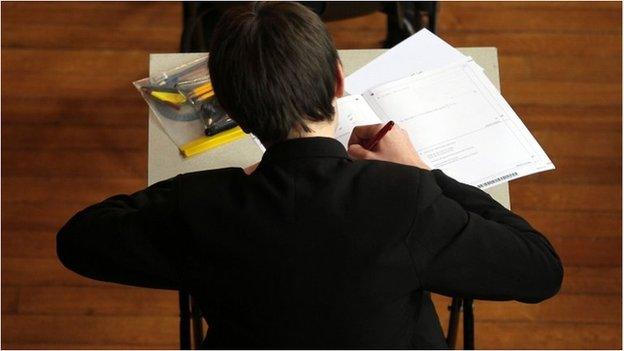Tough questions over exam setting
- Published

Scotland's exams body has sought to calm fears that pupils will be disadvantaged by a Higher maths paper which candidates claim was impossible.
There's nothing new about students complaining that they found an exam harder than they had anticipated.
But once these conversations were confined to the relatively narrow social networks of personal friends and classmates.
Today social media allows such concerns to be shared much more widely.
The fundamental questions remain the same though: was an exam just hard or was it tougher than teachers and students might realistically have expected?
The changes to Highers being phased in this year and next give a greater urgency to those questions.
Some maths teachers say they thought the paper was exceptionally difficult.
But the EIS union says it has not been contacted by teachers expressing concerns.
General secretary Larry Flanagan said he believed the SQA had "quite robust procedures" to deal with rogue questions.
He added that he believed the story about the maths paper had been "pupil led".
The union normally meets with the SQA after the exam season to discuss any issues which arise.
Last year some pupils complained about an especially hard question in the National 5 English exam while two years ago, ironically, one former examiner claimed that the Higher Maths exam was far too easy.
In general, the Higher Maths paper contains questions of varying degrees of difficulty. The toughest ones are designed to test those who might be capable of a top grade - the "easiest" to give less able candidates the chance to pass.
The exact pass mark and the grade boundaries are set every year after papers are marked. This is designed as a safeguard against exams which proved too easy or too hard.
Inevitably this will be an anxious time for students and parents - especially those relying on their results to get into university.
Whether the concerns of some are well founded will probably only become apparent when the exam results come out in August.
It will be impossible to judge how well-founded the concerns prove to be until the exam results are out in August.
But any significant lowering of either the pass mark, or the marks needed for a good grade, is bound to prove hugely embarrassing for the SQA, even though the organisation is attempting to reassure students that they don't need to worry.